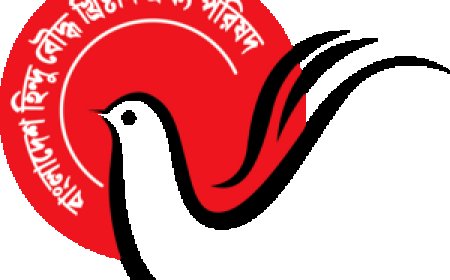Should Bangladesh bring its outsourced workforce under national control?
Should Bangladesh bring its outsourced workforce under national control?

Outsourced workers from various government institutions blocked roads at the Shahbagh intersection in the capital yesterday, demanding the nationalization of their jobs. After issuing a 15-day ultimatum to the government, the protesters eventually left Shahbagh.
Anisur Rahman, president of the Outsourcing Employees Association, stated, “If no visible steps are taken to address our demands, we will be compelled to escalate our actions.”
What is an Outsourced Employee?
An outsourced employee in a government organization is not directly employed by the government. Instead, they are typically paid on a daily basis.
Rahel Raihan, an outsourced employee with the Department of Women’s Affairs, shared, “Since the job is temporary, we live in uncertainty and can be dismissed at any moment.”
In 2008, the Finance Division introduced an outsourcing policy, which was amended in 2018 to provide more detailed guidelines. Under this policy, government institutions are not obligated to create permanent positions for outsourced employees, nor can they outsource for official roles.
An anonymous Finance Division official explained to Dhaka Tribune: “A government institution contracts another organization for a temporary period to facilitate operations. That is the rationale behind the outsourcing policy.” Institutions can include the costs associated with outsourced employees in their non-consulting services budget. Outsourced workers perform various roles, such as security guards, cleaning staff, gardeners, transportation workers, cooks, hostel staff, and operators for lifts, generators, and plumbing services, among others.
Currently, there is no defined number of outsourced employees. Several ministries contacted by Dhaka Tribune were unable to provide exact figures.
Are the Demands Justified?
In the afternoon, a delegation met with the chief adviser and his press secretary. Anisur Rahman reported that the press secretary informed them that either a separate reform commission would be established to address their concerns or the existing reform commission would find a solution.
Mahmudul Hossain Khan, Secretary of Coordination and Reform, told Dhaka Tribune, “We have not received any new instructions yet. If the government decides to take action, we will implement it.” Zonayed Saki, chief coordinator of the Ganasamhati Andolon, remarked that the protesters' demands are reasonable. He noted, “There is a government policy for direct recruitment in government projects and autonomous organizations that does not require third-party contractors. However, this discriminatory system persists due to connections between bureaucrats and contractors.”
Salary Delays and Job Insecurity
Third-party contractors are companies that win tenders from government or autonomous organizations for various projects and labor management. They hire employees and facilitate salary payments through their channels rather than directly from the government or organization. Although regulations mandate that they pay salaries, bonuses, and other benefits according to the government salary structure, protesters allege significant discrepancies in what they receive.
Outsourced employees have raised several complaints, including job losses stemming from tender complications. When one contractor loses a contract, the new contractor may not retain the previous employees. Affected workers often feel pressured to bribe the new contractor to secure their jobs since the new contractor has the authority to hire at will. Additionally, these employees have no legal recourse to keep their positions if the contractor chooses not to retain them.
In June, some employees reported being asked for large bribes for job renewals, with those who refused facing termination. Protesters also complained about irregular salary payments, with some experiencing delays of five to six months or even up to two years.
Masum, an employee in the Rajshahi Engineering Department, told Dhaka Tribune, “We work on a contract basis through different contractors. They claim we are doing government jobs, but we aren’t. Contractors take a significant portion of our salaries. We want direct employment with the government, not through contractors.”
Sohel, a driver with the Department of Agricultural Extension, added, “We are recruited by a company. The government hires manpower through tenders, but after recruitment, the company deducts part of our salaries. We work hard, but they take a share. Those of us who have been working in government organizations for 8–10 years as gardeners, drivers, and peons want to end outsourcing and secure permanent employment.”
BIWTA outsourced employee Mohammed Hasnain expressed his frustration: “Kill us or meet our demands. I have not received my salary for the last six months, even though I work at the same level as permanent employees. We face discrimination despite having the same skills and work ethic. My colleagues receive their salaries, allowances, and holidays, but I have no guarantee of how my family will survive.” Hasnain noted that the salary scale for outsourced employees is similar to that of permanent employees, but their payments are delayed, and contractors take a cut. Moreover, their job security is nonexistent.
Protesters fear losing their jobs at any moment if their positions remain non-permanent. They believe that job stabilization is the only viable solution.
How Much Would Nationalization Cost?
Currently, outsourced employees fall into five categories and are paid between Tk16,130 and Tk19,110 depending on their job location and category. If the government were to nationalize these employees, they would receive salaries according to the national pay scale, which would place them in Grades 17 to 20, with basic salaries ranging from Tk14,450 to Tk15,800, in addition to allowances.
In addition to salaries, government employees receive benefits such as pensions. If the government nationalizes outsourced employees, it would need to fund these benefits as well.
For this financial year, the government is projected to spend Tk87,700 crore on salaries for government employees. This figure does not include outsourced employees’ salaries, which individual institutions fund through their consulting services budget. The exact cost of nationalizing outsourced employees remains uncertain.
What's Your Reaction?




















































































